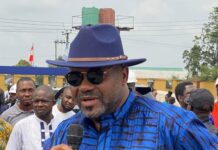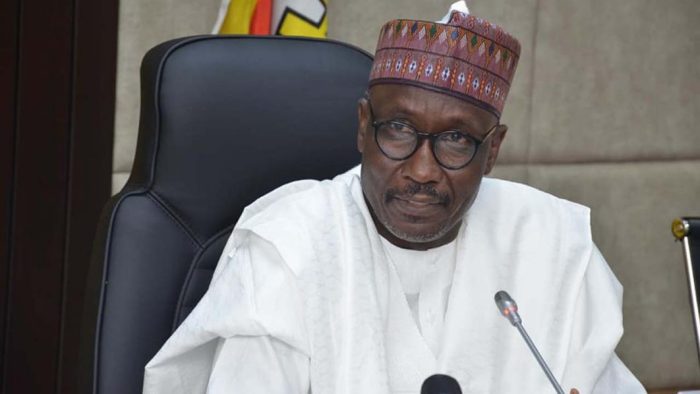
This week, I was in Dakar for a conference on the framework and tools for sustaining democratic governance in West Africa organised by the United Nations Office for West Africa and the Sahel in conjunction with the Open Society, Kofi Anan and the National Democratic Institutes. The context is dramatic. West Africa has taken the African leadership position in developing the tools and dynamics for democratisation since the 1990 Benin National Sovereign Conference and ECOWAS has played a very active role in the process, developing and operationalising the normative framework for democratic sustenance. The Supplementary Protocol on Democracy and Good Governance it developed became the model for the African Union to produce its own Charter. Today, West Africa is facing a drastic regression of its democratic order. Three countries in the region, Mali, Guinea and Burkina Faso have recently suffered the indignity of coups and military come back. The democratic recession in West Africa is occurring in a global context in which democracy is under siege and authoritarian systems and arbitrary rule are galloping through many countries all over the world.
The review of data from cross-country surveys in West Africa by Mathias Hounkpe showed that the majority of people in the region, 75 per cent, strongly support democracy, 71 per cent reject military rule and 80 percent of the people are against tenure elongation beyond two terms in office. Nonetheless, many political and military leaders in West Africa are acting against the wish of their people and disrupting the democratic order and forcing a return to authoritarianism. The verdict is clear that West African democracy is confronting a significant regression because its leaders are currently unravelling and destroying the normative system and political values they have themselves enacted for the consolidation of democracy.
In 1990, African countries began the long transition from military regimes and single-party rule to multiparty democracy. In the past two decades, the African Union and Regional Organisations have made bold decisions and adopted normative frameworks in the pursuit of a more democratic, peaceful, stable, and prosperous continent. The New Partnership for Africa’s Development, adopted by African leaders in 2001, reflected their collective desire for an African-owned and -led development effort. The major constituent instruments adopted by African governments include the 2000 Lomé Declaration on unconstitutional changes of government, which was subsequently codified into Articles 4 (P) and 30 of the 2000 Constitutive Act of the African Union and the 2007 African Charter on Democracy, Elections and Governance, which came into force in 2012.
Specifically, African governments have led efforts to define sovereignty as governance responsibility. There has been a paradigm shift away from the principle of non-interference in domestic affairs of member states to non-indifference. This is reflected in the amended Article 4(h) of the Constitutive Act, which gives the African Union “the right to intervene in a member state… in respect of grave circumstances, namely, war crime, genocide, and crime against humanity as well as serious threat to legitimate order to restore peace and stability to the member state of the Union.”
The problem has been that the African ruling class has too many wolves dressed in sheep’s clothing – tyrants parading themselves as democrats. General Babacar Gaye for example reminded the conference that former Guinean President, Alpha Conde, for a long term led a committee of progressive African political parties combating tenure elongation. Towards the end of his second term in August 2019, the same Conde spent the Eid Holiday in Daura with President Muhammadu Buhari of Nigeria and on his return to Guinea announced his third term ambition while Nigeria and other West African countries kept quiet. The harvest we reaped was the military coup and return of political instability.
We recall that in 2005, following President Eyadema’s death, his son took over his “father’s” country rather than follow the Constitution of the country that had a provision for the President of the National Assembly to takeover. ECOWAS sent two mediators to persuade him to step down – President Obasanjo of Nigeria and President Tandja of Niger. That same year, Obasanjo set in motion his secret two-year plan for tenure elongation which was eventually scuttled by the National Assembly. In Niger, President Tandja simply refused to organise elections at the end of his second term announcing he has changed the Constitution, although the Constitutional Court had ruled he had no power to do so. It took mass demonstrations and a military coup to remove him from power.
Given this situation, ECOWAS had been trying to review its Supplementary Protocol on Democracy and Good Governance. They tried it in 2015 and the Gambia and Togo scuttled the attempts. Gambia was then ruled by Yahya Jammeh who had told the BBC in 2011 that he would rule for one-billion years, God willing. For Togo, Eyadema the father and Eyadema the son had ruled successively for a combined 55 years and did not want the oldest political dynasty in Africa to end. Jammeh is gone but Faure Eyadema is still in power.
The next attempt was last year and once again, Togo objected and was joined by Senegal where Macky Sall came into power riding a popular wave of opposition to President Wade’s third term agenda and he now wants his own tenure elongation. Cote d’Ivoire also objected as President Ouattara is already enjoying his third term in office. These countries used the unanimity clause in decision-making to prevent the inclusion of a new article banning tenure elongation beyond two terms. So far, 16 countries have eliminated or modified term limits for their presidents and 13 of them took such action in the past six years.
The base for developing democracy is political parties and as a party leader from Burkina Faso, Madam Yeli Monique Kam explained, most parties are corrupt, divisive and authoritarian creating a situation on non-governance and anomie. This is the context that gave rise to the development and spread of violent extremism that has created a huge crisis in the Sahel. Developing a pathway towards renewed peaceful existence in the Sahel would require not just military action but above all, beginning to provide the dividends of a rejuvenated democracy that must be salvaged to guarantee a peaceful and prosperous future.
The conference ended with a call to listen to the African people who are committed to democracy and know its benefits. They have always shown their determination to struggle to conserve and deepen democracy in spite of a succession of leaders who turned out to be traitors of democracy. Africans would not accept democratic regression and a new leadership in tune with the vision of the people should join them in renewed efforts to combat arbitrary and authoritarian rule while striving for the restoration of democratic governance. No foreign power would come and solve Africa’s problems. African countries need to focus their efforts on gradually building the relevant institutions that support democracy and development, while ensuring that development dividends are shared among the citizens. Finally, African countries can improve their citizens’ lived experiences by pursuing policies that offer hope, opportunities, inclusion, responsibility, and justice.



